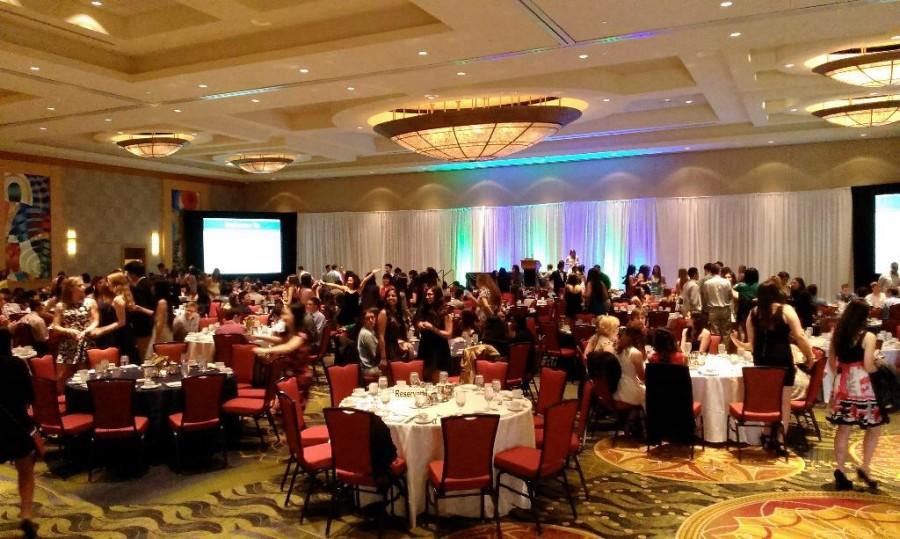‘Most attractive’ is least attractive superlative
Seniors celebrate at the Senior Banquet April 22.
April 29, 2015
Second semester senior year is filled with fun events centered around class bonding and bringing the students together for a final hurrah before they graduate and move onto the next stage of life. One of these events is the senior banquet, consisting of dinner, pictures, friends and the ever-popular senior superlatives.
Senior superlatives are presented during the banquet and offer an opportunity for students to recognize the best and most unique qualities in one another. At least that’s what they are supposed to do. However, one specific superlative does just the opposite – “Most Attractive Student.”
This superlative forces students to select one male and one female student who best fits what society deems attractive. But who are we to say what makes one person more attractive than another?
Beauty is internal and external. It’s also in the eye of the beholder, but this superlative forces CHS students to submit to society’s wrongful determination that there is only one way to be attractive.
There’s no reason for CHS students to vote on the superlative for most attractive. With 29 other superlatives, there are bound to be other options for students to be recognized for their eye-catching features and abilities.
By continuing to allow the “Most Attractive” superlative to exist, CHS, its SGA and its administration are submitting to the media and popular culture’s ideas of attractiveness.
As a school helping to mold teenagers into intelligent and confident citizens of the world, CHS is doing an injustice to all students who are asked to vote on who they think is the most attractive.
With the school promoting programs like Sources of Strength, a student program aimed at spreading mental health awareness, the school should rally behind positivity. The negative energy brought on by the “Most Attractive” superlative undermines our community’s attempts to help students’ build self-esteem.
After all, no teacher would call on a student and say that he or she is the most attractive in the class, so why do we force our class officers to do so during the senior banquet?
Many say that superlatives are silly paper plate classifications of seniors, and that point may be true. But how did it feel when 458 dressed up students were sitting in the Marriott and then forced to clap for the students their classmates thought were more attractive?
It felt awful.
CHS and general high school culture need to address what is wrong with categorizing students like this. Without change, CHS reaffirms that whatever society deems as beautiful is what is beautiful.
No matter what happens, seniors should still look forward to laughing and celebrating with their classmates, but it should be in the context of building each other up, not tearing each other down.
Class of 2016, don’t sit at your banquet and listen to the “Most Attractive” superlative be read. Do something to change the stigma that attractiveness can be defined.


